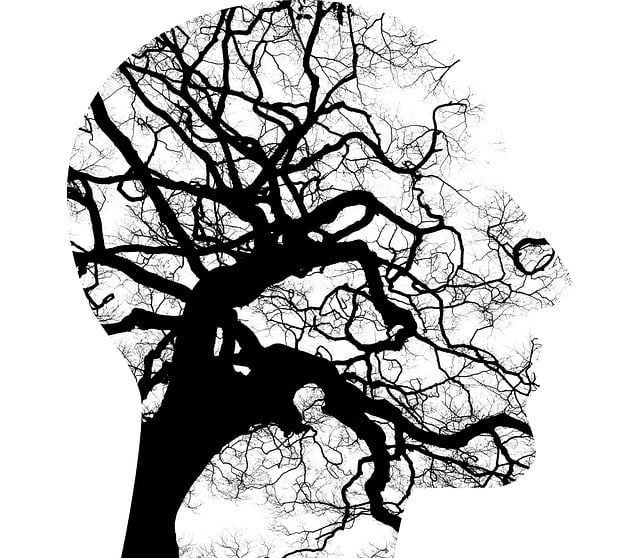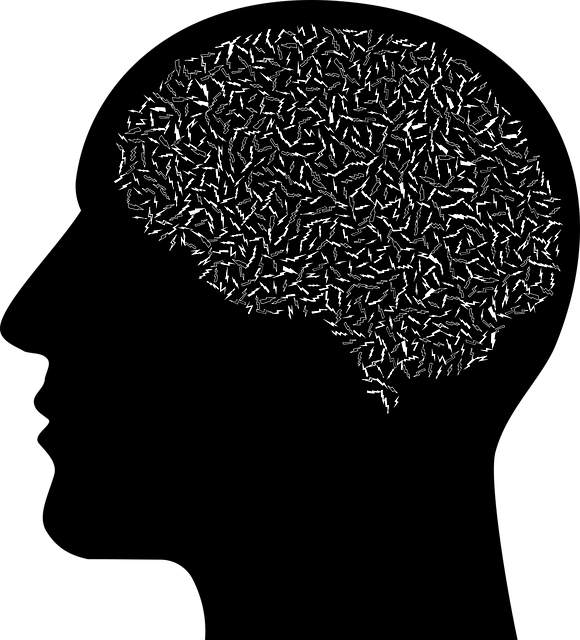In today's digital age, understanding mental health data from online platforms like therapy sessions, wellness coaching, and surveys reveals valuable insights into mental wellness trends, at-risk populations, and effective interventions. Preprocessing and cleaning this data, especially in niche areas like divorce-related therapy, involves handling sensitive information and advanced data management techniques. Analysis shows a growing trend towards holistic approaches, indicating increased awareness of the connection between mental well-being and self-care routines. Divorce significantly impacts mental health, leading to conditions like anxiety, depression, substance abuse, and self-harm. Data analysis allows for tailored interventions, such as Therapy for Divorce, risk assessment tools, and evidence-based coping strategies, enhancing resilience and improving life transition outcomes. Through data-driven approaches, therapists can develop personalized therapy strategies focusing on inner strength development and emotional processing, enabling effective healing and personal growth.
Mental health data analysis is a powerful tool for understanding complex psychological trends. In this article, we explore how data can illuminate critical insights into therapy effectiveness, particularly in the context of divorce. From understanding data collection and preprocessing to uncovering therapy trends and identifying mental health patterns, each section delves into essential aspects. We discuss correlations between divorce and mental health, highlighting the potential for better support strategies based on robust interpretations of these analyses. By leveraging data, we can drive meaningful change in how we provide therapy for divorce.
- Understanding Mental Health Data: Collection and Sources
- Preprocessing and Cleaning Data for Accurate Analysis
- Exploring Therapy Trends: What Does the Data Reveal?
- Divorce-Related Mental Health Patterns and Correlations
- Interpretations and Applications: Informing Better Support Strategies
Understanding Mental Health Data: Collection and Sources

Understanding Mental Health Data begins with recognizing the diverse sources and methods of collection. In today’s digital era, a plethora of data points are generated from various platforms like online therapy sessions, mental wellness coaching programs, and survey tools designed to assess psychological well-being. These sources offer valuable insights into individuals’ mental health states, behaviors, and coping skills development, especially when it comes to niche areas such as anxiety relief or therapy for divorce.
The data collected can range from self-reported symptoms, demographics, and treatment outcomes to behavioral patterns and emotional responses. By analyzing these datasets, researchers and professionals gain a deeper understanding of mental wellness trends, identify at-risk populations, and inform the development of effective interventions and support systems. This comprehensive approach not only enhances coping skills development but also ensures tailored strategies for addressing specific challenges like anxiety or divorce-related trauma.
Preprocessing and Cleaning Data for Accurate Analysis

Before diving into the complex landscape of mental health data analysis, a critical step is preprocessing and cleaning the data. This involves several crucial techniques to ensure accurate insights. For instance, in the context of therapy for divorce, data may include sensitive information from various sources like clinical notes, survey responses, and medical records. Cleaning this data means handling missing values, identifying and rectifying inconsistencies, and removing any irrelevant or duplicate entries. It’s akin to weaving a tapestry; each thread (data point) must be meticulously examined and secured before the pattern of mental health trends becomes clear.
Moreover, preprocessing should include normalizing data to ensure consistency across different measurements and scales. This is especially relevant when integrating various emotional well-being promotion techniques or developing Mental Wellness Journaling Exercise Guidance. By preparing the data properly, researchers can avoid misinterpretations and focus on identifying meaningful patterns and correlations. Additionally, public awareness campaigns development can benefit from clean datasets, enabling them to disseminate accurate information about mental health issues and available support systems.
Exploring Therapy Trends: What Does the Data Reveal?

In today’s digital era, mental health data analysis has become a powerful tool to explore therapy trends and gain valuable insights. By delving into various datasets, researchers can uncover patterns and preferences in therapeutic practices. For instance, an intriguing trend emerges when examining Therapy for Divorce—a growing interest in holistic approaches combining traditional counseling with innovative interventions like art therapy or mindfulness practices. This shift suggests a growing recognition of the interconnectedness between mental well-being and self-care routines. Many individuals are now seeking comprehensive support that addresses not just the emotional aspects, but also promotes healthy lifestyle changes.
Moreover, data analysis highlights the demand for tailored mental health education programs designed to cater to diverse populations. By understanding community needs, healthcare providers can implement effective Trauma Support Services, ensuring accessibility and cultural sensitivity. This analytical approach not only optimizes treatment outcomes but also fosters a more inclusive and supportive mental health landscape, where self-care routine development becomes an integral part of overall well-being strategies.
Divorce-Related Mental Health Patterns and Correlations

Divorce is a significant life event that can lead to various mental health outcomes, and understanding these patterns is crucial for mental health professionals. By analyzing data related to divorce, researchers and practitioners can uncover commonalities and differences in how individuals cope and recover. Studies have shown that divorce-related stress can manifest in diverse ways, from anxiety and depression to substance abuse and self-harming behaviors. Identifying these patterns allows for the development of tailored interventions and therapies for divorce (Therapy for Divorce), ensuring a more effective support system for those affected.
Risk assessment tools play a pivotal role in predicting potential mental health crises among individuals post-divorce. These assessments help mental health professionals guide crisis intervention strategies and provide proactive care. Additionally, crisis intervention guidance can be tailored to address specific challenges, such as parenting issues or financial strain, which often accompany divorce. By combining risk assessment with evidence-based interventions, professionals can enhance their clients’ resilience, improve coping mechanisms, and ultimately boost confidence in navigating this life transition.
Interpretations and Applications: Informing Better Support Strategies

Interpretations and Applications: Informing Better Support Strategies
The analysis of mental health data provides a powerful tool for understanding complex psychological issues, including those stemming from life events like divorce. By delving into the insights gained from this process, mental health professionals can develop tailored therapy strategies for divorcees. These evidence-based approaches focus on enhancing inner strength development and confidence boosting, addressing core issues that may have been exacerbated by the stress of separation or divorce.
Through careful interpretation, therapists can offer targeted interventions, such as encouraging Mental Wellness Journaling Exercises Guidance, to help individuals process their emotions, gain perspective, and cultivate resilience. This data-driven approach ensures that support strategies are not only informed but also closely aligned with the unique needs and experiences of each individual, fostering more effective healing and personal growth.
Mental health data analysis offers a powerful tool to uncover trends and patterns, guiding the development of more effective support strategies. By exploring therapy trends, such as divorce-related mental health issues, we gain insights that can inform improved care. Preprocessing and cleaning data ensure accurate interpretations, enabling professionals to make informed decisions and adapt therapeutic approaches. Understanding these complexities is crucial in enhancing mental well-being, especially for individuals navigating the challenges of divorce, where therapy can play a pivotal role in their recovery and resilience.








